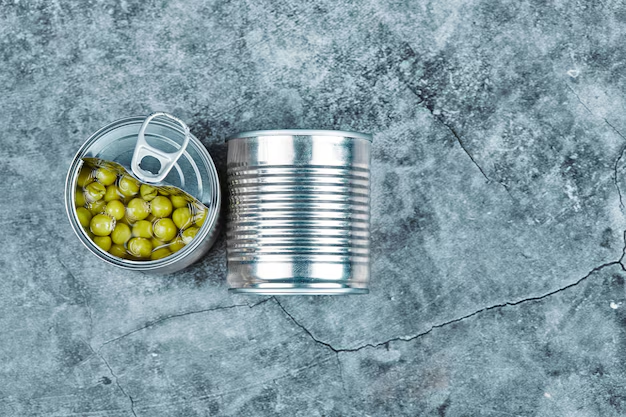Is Refrigerating Olive Oil a Good Idea? Understanding Storage Best Practices
Imagine opening your refrigerator only to find that your favorite olive oil has transformed into a cloudy, goopy mystery. You may wonder if this is normal or if you've made a mistake by putting it there. Olive oil is a kitchen staple cherished for its health benefits and flavor. Therefore, understanding the best way to store it is essential. So, can you put olive oil in the refrigerator? Let's explore this question and the broader nuances of olive oil storage to ensure your culinary adventures remain tip-top.
🌿 Understanding Olive Oil Properties
The Composition of Olive Oil
Olive oil, particularly extra virgin, is celebrated for its unique flavor and health advantages. It is rich in monounsaturated fats and antioxidants, making it a heart-healthy choice. Its chemical composition includes triglycerides, free fatty acids, and a range of minor components such as phenolic compounds responsible for its distinctive taste and aroma.
Temperature Sensitivity
Olive oil's structure is sensitive to temperature changes. At lower temperatures, especially in the refrigerator, it can solidify due to crystallization of the monounsaturated fats. However, this transformation does not indicate spoilage or loss of quality. When returned to room temperature, the oil regains its liquidity and clarity without losing nutritional value.
🌡️ Refrigeration: The Effects on Olive Oil
Why Refrigerate Olive Oil?
The primary reason to refrigerate olive oil is to extend its shelf life by slowing oxidation. Cool, dark conditions prevent the degradation of the oil’s quality, preserving its flavor and nutritional benefits.
What Happens in the Fridge?
When you refrigerate olive oil:
- Solidification Occurs: The oil may turn cloudy and develop a thick consistency.
- No Spoilage: These changes are purely physical and do not indicate spoilage.
- Reversible Process: Once removed from the fridge, olive oil will return to its normal state over time.
Pros and Cons of Refrigeration
Pros
- Extended Shelf Life: Refrigeration can prolong the life of olive oil, especially in warm climates.
- Protection from Heat and Light: It shields the oil from factors that can hasten spoilage.
Cons
- Texture Change: The altered texture might be inconvenient for quick usage.
- Delay in Usage: Time is required for the oil to return to its liquid state after refrigeration.
🏡 Optimal Storage Solutions for Olive Oil
Storing at Room Temperature
Typically, olive oil is best stored at room temperature in a cool, dark place like a pantry. This avoids the inconvenience of refrigeration while still protecting the oil to some degree from heat and light degradation.
Choosing the Right Container
- Dark Glass Bottles: These help block out light, one of the primary enemies of olive oil quality.
- Stainless Steel Containers: For bulk storage, metal containers are economical and effective.
- Avoid Plastic: Interaction with plastic can degrade the oil's quality by leaching chemicals.
Shelf Life Expectations
When stored properly at room temperature, unopened olive oil can last up to two years. Once opened, it is best consumed within six months to a year to ensure peak freshness and flavor.
🔍 Factors Influencing Olive Oil Quality
Light
Prolonged exposure to light can break down the delicate compounds in olive oil, leading to a loss of flavor and nutritional qualities. Always choose opaque containers and store them away from direct sunlight.
Oxygen
Oxidation is another adversary of olive oil. Keeping containers sealed when not in use is vital to minimizing exposure to air, which can deteriorate the oil.
Heat
High temperatures speed up the degradation process. Aside from light and air, heat is one of the worst contributors to olive oil spoilage.
🍳 Practical Tips for Everyday Olive Oil Use
Buying in Manageable Quantities
Buying olive oil in smaller quantities ensures it remains fresh. Opt for bottles that match your usage frequency to reduce storage time.
Transferring to Usage Bottles
- Store large quantities in optimal conditions and transfer portions to smaller, easy-to-use bottles that you keep accessible for daily cooking.
- This technique allows you to preserve the bulk of your supply while having convenient access in the kitchen.
Using Taste and Smell as a Guide
Even with the best storage practices, always use your senses to gauge olive oil freshness. If the taste is bitter, and unpleasant or the smell is off, it might be time to replace your supply.
🧴 Summary: Best Practices for Olive Oil Storage
To ensure your olive oil remains at its best:
- 🌡️ Temperatures Matter: Store in a cool, dark place; refrigerate only if necessary.
- 🕶️ Protect from Light: Use dark glass or metal containers.
- 💨 Seal Tight: Minimize exposure to air for longevity.
- 💡 Handle with Care: Be cautious with larger quantities to prevent spoilage.
Understanding these basic principles helps you maintain high-quality olive oil that can elevate your cooking and contribute positively to your well-being.
📝 Key Takeaways for Storing Olive Oil
Here's a handy list to guide your olive oil storage decisions:
- Dark, Cool Storage: Preferably pantry storage.
- Refrigeration Effects: Not harmful, but changes texture.
- Use Smaller Bottles: For better freshness control.
- Choose Dark Containers: They shield from degrading light exposure.
- Monitor Quality: Regularly check for taste and smell to ensure freshness.
These insights allow you to navigate the nuances of olive oil storage confidently, helping you make informed decisions that benefit both your health and culinary outcomes without compromising on quality.
Storing olive oil correctly is key to preserving its myriad benefits. Each kitchen may have slightly different needs, so adjust these guidelines to best suit your environment and usage patterns. Whether refrigerated or kept at room temperature, with mindful storage practices, your olive oil can remain a robust, flavorful companion in your culinary endeavors.

